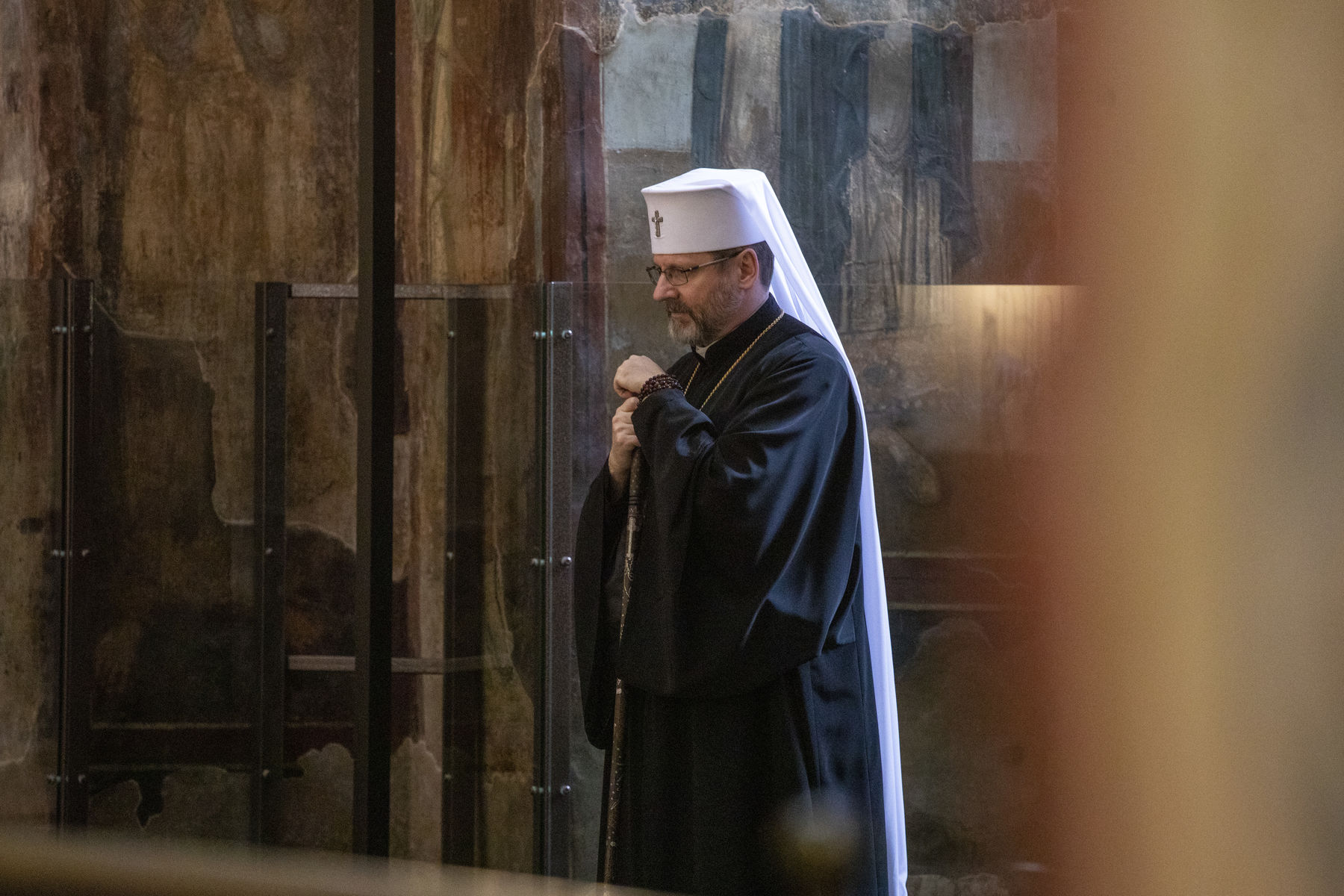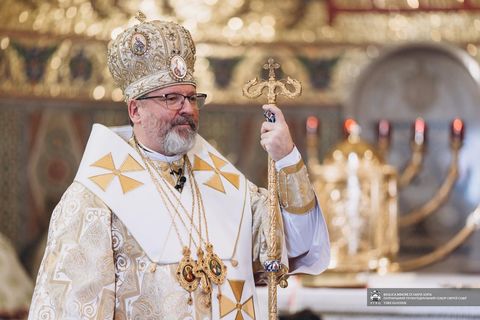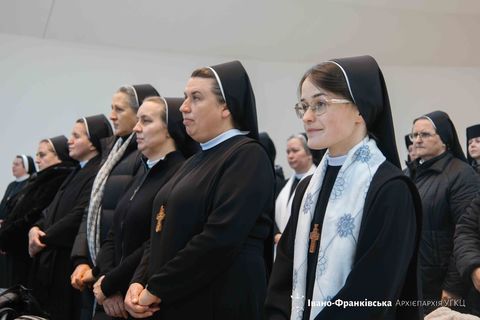The time of Lent is a ‘young soldier’s course,’ a period when we learn to tame ourselves, His Beatitude Sviatoslav
How can we experience the time of Lent in such a way that it is spiritually valuable? What to eat (or not to eat) is partially closed: do not devour one another, as St. John Chrysostom said. But what is true fasting for a person, now and always? His Beatitude Sviatoslav, the Father and Head of the UGCC, speaks about this in a monthly live program on Zhyve TV.

“The time of Lent, if we define it in military terms, is a ‘young soldier’s course,’ a period when we learn,” says His Beatitude Sviatoslav. “The Christian word ‘asceticism’ means exercise. And during Lent, we learn to tame ourselves, our vices and passions, and improve our Christian spiritual life. Therefore, Lent is a time of work on oneself. During a young soldier’s training, he is preparing for a real battle: he must learn how to use weapons, collaborate with his comrades, and improve his physical endurance — all of which are necessary to realize victory in the battle he is preparing for and will fight. The same can say about our Christian life: we must learn to overcome our enemy — the enemy who is not of flesh and blood. This enemy inspires us with sinful hints and desires and dominates us through our weaknesses. Therefore, during Lent, we must learn to conquer it — to overcome our vices and shortcomings, to learn to control ourselves to overcome the devil and his servants, to overcome ourselves and be well prepared for daily Christian life after Lent.”
His Beatitude Sviatoslav emphasizes that any fast is not about food but relationships: with God, oneself, and one’s neighbors. Therefore, the ‘exercises’ of fasting are prayer, abstinence, and almsgiving.
“Whether in peaceful times or wartime circumstances, it doesn’t matter — we always live in three dimensions, in three types of relationships. First, we always communicate with God. A person always carries their inner spiritual world wherever they go. As they say, you can’t run away from yourself. And there are always people around us whom we meet. Therefore, we will fast if we manage these relationships.”
His Beatitude Sviatoslav rephrases the standard question about giving up meat during Lent: “There is a very famous phrase of John Chrysostom: ‘what does it profit if we abstain from birds and fishes; and yet bite and devour our brethren?’ It accurately reflects even the meaning of abstinence in the food we practice during Lent.
I remember the advice of my spiritual father when I was a young boy and learned to stick to Lent: ‘Never make resolutions about what you will give up for Lent which you don’t plan to fulfill when it passes.’”
“If so, the fast was not fruitful,” says the Primate, “and the resolutions and exercises that the person executed were wrong and completely unnecessary — it was a waste of energy.”
To properly experience Lent’s spiritual time, we advise you to consult a confessor or priest to whom you often go to confession at the beginning of Lent. It is necessary to create a program that is right for you and would correspond to the state of your life, health, and soul so that during Lent, you can learn to combat the problems that cause sin for you.
The UGCC Department for Information


